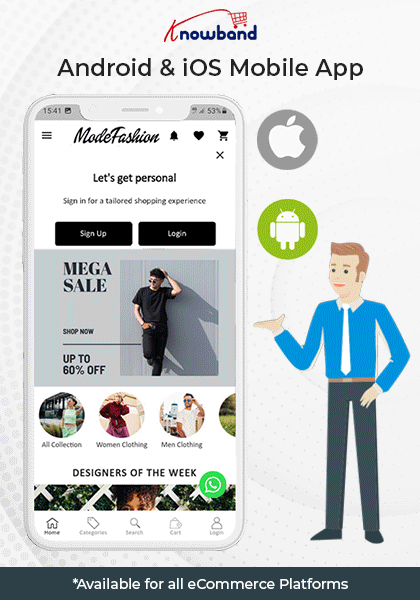A multi-vendor website is an online store that enables multiple vendors to sell their products on a single platform. In this model, the vendors manage their seller accounts and inventory. Also, they pay a commission to the eCommerce storefront owner for facilitating their sales on the marketplace.
For both the vendor and the store owner, this arrangement is mutually beneficial as it allows for increased customer traffic and expanded reach. Vendors can also collaborate and seek support from the community in the event of any technical challenges on the website.
Benefits Of Marketplaces
A multi-vendor marketplace provides some advantages for its operators. Its core function is to serve as a reliable platform that connects buyers with suppliers, facilitating secure and trustworthy transactions. The marketplace earns its revenue through commissions charged on each transaction. This business model is designed to benefit all parties involved – including buyers, sellers, and the operator.
Marketplace Design: Meeting the Needs of Sellers and Buyers
Marketplace websites are designed to cater to two types of users – sellers, and buyers. Therefore, the design of the website should be intuitive and user-friendly for both parties. Here are some essential design features that can help meet the needs of both groups:
Key Marketplace Design Features for Seller
For a multi-seller marketplace to succeed, it is critical to have an engaged group of sellers. Additionally, it is important to provide them with the necessary tools for efficient management. Here are some essential features that can boost vendors’ capabilities and ensure the success of your marketplace.
Seller Account and Product Management
To manage their products effectively, vendors require access to a personal account that contains data on their products, warehouses, notifications, and more. To provide additional security and flexibility, you can also grant different permission levels to vendors enabling multiple user roles.
Marketing and Promotion
Promotions, discounts, and coupon codes play a vital role in marketing campaigns. They significantly increase revenue and boost customer loyalty. Further, to empower vendors to manage their personalized and customizable marketing tools, they must use these features.
Analytics
Custom dashboards that display essential information, deliver reports, and update statistics are essential to vendors. They need to track key metrics related to their sales, customer session time, and more. Data visualization can help them instantly obtain and perceive this information.
Social Media Feedback
Social media integrations can be used to collect and deliver customer feedback. This helps in allowing vendors to gather opinions about your multi-seller marketplace and increase its popularity. Social networks are an excellent tool to engage customers and increase your platform’s visibility.
Overall, these key features can help sellers manage their products and drive the success of your marketplace. By providing vendors with the right tools, you can create a thriving ecosystem that benefits both sellers and buyers.
Marketplace Design Features for Buyers

Attracting more customers and ensuring a seamless user experience is the ultimate goal of any marketplace. To achieve this, it is essential to include features that help buyers navigate through the platform and make informed decisions.
Product Comparison
One of the essential features for buyers is the ability to compare similar products and choose the best option based on specific characteristics. Implementing an automated comparison feature will save buyers time and effort, reducing the need to visit multiple online stores to find what they need.
Shopping Cart and Payment
A clear shopping cart that allows buyers to adjust the number of items, choose shipping options, and add notes is necessary. Providing multiple payment methods such as PayPal, Stripe, and Braintree enhances convenience and ensures that the payment system works smoothly.
Customer Account
Customers should be able to sign up and manage their accounts to view their order history. Additionally, creating shopping lists, and streamlining the sale and order tracking process. However, simplifying the signup process or making it optional can be beneficial for first-time buyers.
Delivery Tracking
To improve customer service, providing timely order status updates and sending notifications is crucial. Allowing buyers to track their delivery, and see the estimated arrival time builds trust. If they can monitor changes then it will enhance their experience and build trust in your marketplace.
In the End
In this article, we have been discussing the various features to be provided to sellers and buyers. Moreover, in case you are looking forward to setting up a multivendor marketplace then you can have our plugins for the same. In case of any concerns or issues regarding the same, you can connect with us at support@knowband.com.
Apart from that in case you need mobile apps for your business then we are here to assist you for the same. Also, we can provide you with custom developments that are specific to your business needs. Further, we can assist you with module modification too.





